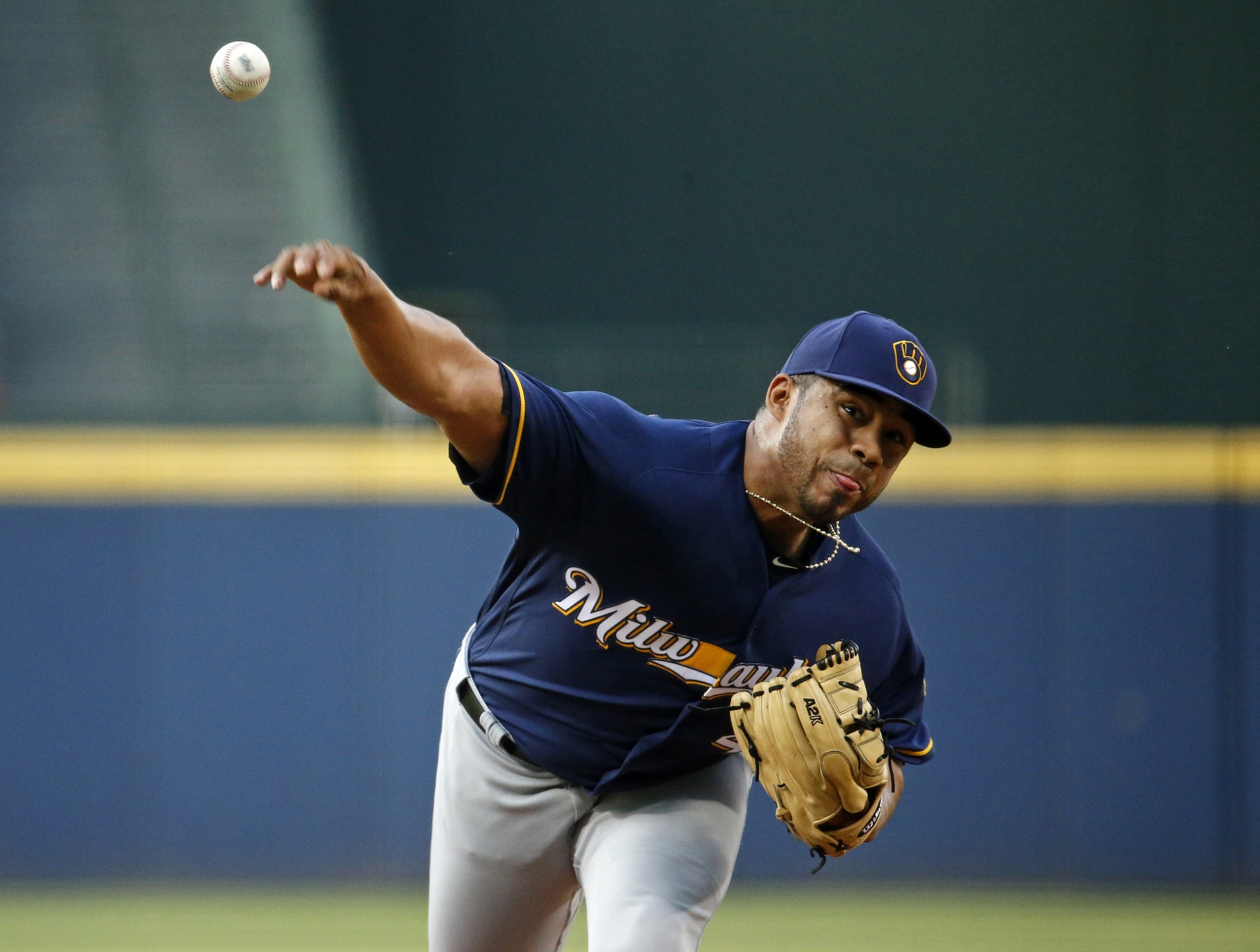The Brewers were able to pull out a 3-2 victory over Atlanta in yet another long game, proving once again that there are in fact tiers of terribleness.
Top Play (WPA):
After another solid outing from Junior Guerra, Chris Capuano allowed a two-run home run to Gordon Beckham, of all people, that put the Braves in front (+.348).
The fact that the top play by WPA was not the game-winning hit speaks to the back-and-forth nature of protracted extra innings games. While it obviously seems like the most impactful play must have been the one that won the game, the Brewers were already pretty heavy favorites at the time of Jonathan Villar’s RBI single. Because each extra frame begins with each team at roughly 50/50 odds to win, each subsequent man to reach base increases the team’s odds to the point where there just simply isn’t much more room to go.
A home run would obviously be a sharp increase; the Brewers were even odds to win the game when the inning started, but by the time Villar came up–four batters into the inning–they were already up to about 85 percent. This increase coming from just one hitter would clearly be a huge swing, but with any sort of gradual build, it is difficult to gather the type of momentum necessary for huge swings in WPA.
Bottom Play (WPA):
Although I will touch on their precise struggles with men in scoring position and less than two outs below, the Brewers did have a chance to win the game in the twelfth with the middle of their order coming up. However, with Ramon Flores on third and two out, the Braves chose to intentionally walk both Ryan Braun and Jonathan Lucroy, setting the table for Chris Carter, who would subsequently strike out (-.166).
Ever since I wrote about Carter’s swing adjustments, he’s been pretty terrible. He has struck out 29 times in his last 15 games and 17 times alone in the last week. Betting that he would strike out with the game on the line was a good move by Atlanta.
Key Moment:
A week after a marathon loss to the Cubs, the Brewers again found themselves in an extended affair–although this one was against the NL-worst Braves rather than the NL-best Cubs. And this one the Brewers were able to squeak out, as Villar delivered his RBI single with the bases loaded in the top of the 13th.
For a while, though, the Brewers looked like they were again going to fail to score with men in scoring position and no one out. Our own Travis Sarandos looked at this phenomenon last week, and it looked like it was rearing its ugly head again when Martin Maldonado grounded into a forceout with the bases loaded and no one out and then Villar was pushed to an 0-2 count.
However, Villar delivered in what was very likely a cathartic moment for many members of the club, and he was able to stave off the “clutch” question for another day.
Trend to Watch:
Junior Guerra had another solid outing, which is sadly noteworthy on this Brewers team. He remains the only starter on the club with a DRA below 4.00, although Jimmy Nelson has improved recently. His continued success is a positive development on the heels of my article from Tuesday in which I discussed the impact of the pitching staff’s struggles on the rebuild: while not all the young pitchers will be successful, if only half of them work out, the Brewers will be happy. One start obviously does not make a career, but silver linings are all the organization can really hold onto at this point when the context is considered.
